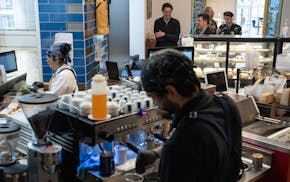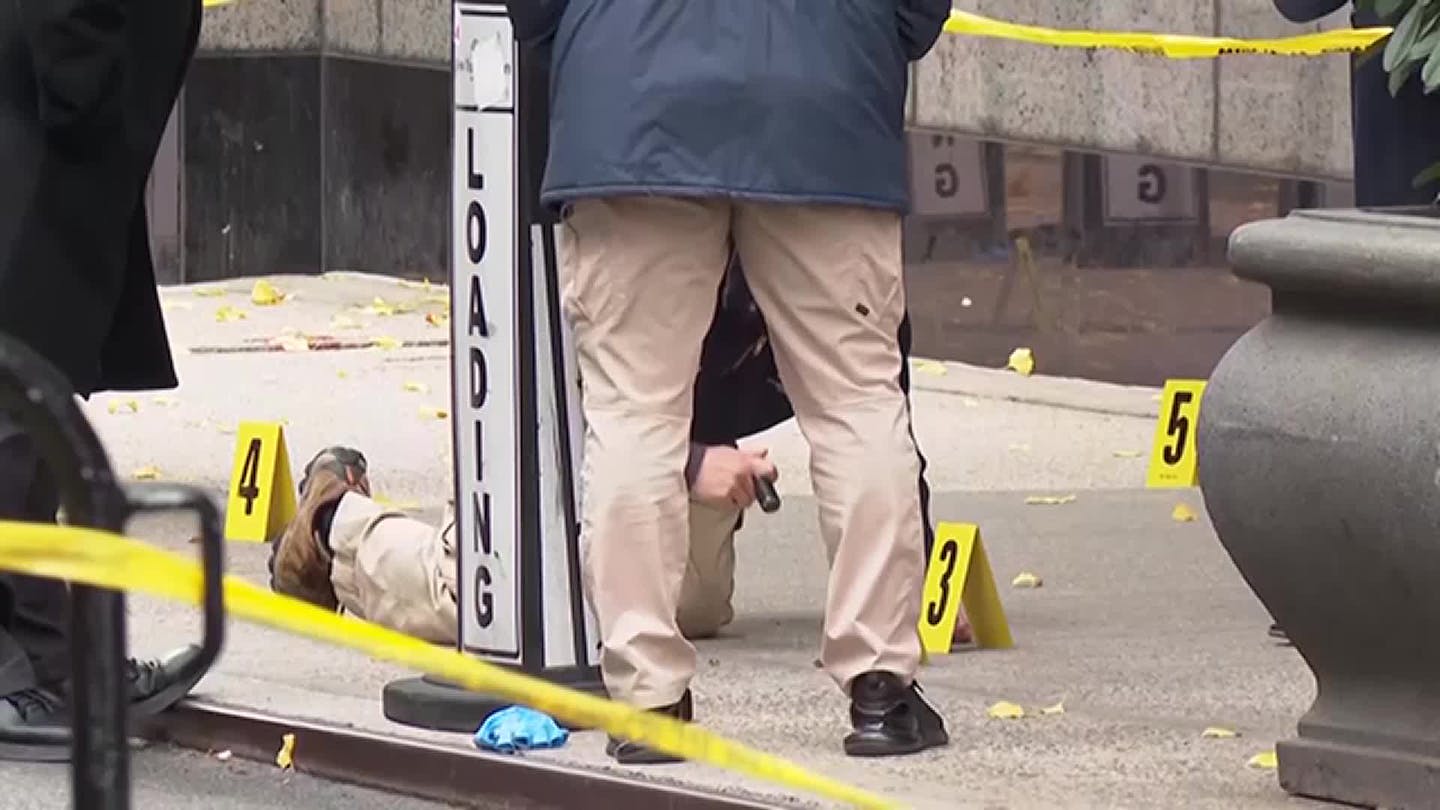Investigators moved closer Thursday to identifying the suspected shooter in the killing of UnitedHealthcare's CEO as New York police released photos showing the face of a person of interest in the case.
News outlets, meanwhile, reported crime scene evidence that suggests frustration over health insurance coverage could have motivated the fatal ambush of Brian Thompson. The 50-year-old executive and Maple Grove resident was killed in what police continued to describe as a premeditated and targeted attack.
The New York Times quoted a senior law enforcement official who said authorities had several leads on the killer and were focusing on a man who had stayed at a hostel on the Upper West Side and used a fake New Jersey ID before the killing.
In Minnesota, colleagues were struggling to make sense of the stunning violence, which occurred Wednesday morning as the executive — known simply as BT among friends — was walking on a public sidewalk to an investor conference.
Adam Hjerpe, a longtime co-worker who is now chief operating officer at Minnetonka-based Medica, said he had exchanged text messages with Thompson over the Thanksgiving holiday.
"To know that just a few days later, this horrific event happens and he's no longer with us — honestly, I gotta tell you, I'm still just processing it myself," Hjerpe said.
The gunman approached Thompson from behind and shot several times before leaving the scene through a nearby alley, police say. He then hopped on an e-bike and rode north along Avenue of the Americas to Central Park.
Early Thursday, ABC News reported that bullet casings at the crime scene had the words "deny," "defend" and "depose" written on them — potentially a clue to the killer's motive, because UnitedHealthcare is the nation's largest health insurer.
Thompson's wife told NBC News on Wednesday that her husband had received threats that might have been related to insurance coverage.
The company and the industry have been embroiled in controversy in recent years about whether insurers have been using prior authorization rules, in particular, to wrongly deny coverage and delay patient care.
On Thursday, police sought a search warrant for a New York City location where the shooting suspect may have been staying, ABC News also reported. Meanwhile, the New York Times reported the shooter used a pistol with a long suppressor, commonly known as a silencer — a detail police could not officially confirm.
"It appears the suspect was lying in wait for several minutes," Police Commissioner Jessica Tisch said Wednesday during a news conference. "And as the victim was walking to the conference hotel, the suspect approached from behind and fired several rounds. ... Many people passed the suspect, but he appeared to wait for his intended target."
Leader, valedictorian
Thompson was an executive for 20 years at UnitedHealthcare, part of Minnetonka-based parent company UnitedHealth Group. He held a number of leadership roles at the company, and he worked previously for the accounting firm PwC.
The Des Moines Register reported that Thompson was valedictorian of his 1993 high school class in Jewell, Iowa. The town is nearly three hours south of the Twin Cities, just west of Interstate 35.
"Brian was a wonderful person with a big heart and who lived life to the fullest," his wife, Paulette Thompson, said in a statement. "He will be greatly missed by everybody. Our hearts are broken, and we are completely devastated by this news. He touched so many lives."
Police released two sets of photos Wednesday showing a person of interest in the case wearing a hooded garment and gray backpack. The images released Thursday showed a man in what looked like a similar hooded garment, but the Thursday photos were the first to clearly show his face.
Investigators did not formally release new investigation details beyond the photos.
Police have said they are examining the contents of a cellphone found in the alley where the shooter fled. They've also indicated the e-bike used by the suspect was part of a local cycle-sharing business.
"There [is] GPS on those bikes," chief detective Joseph Kenny said during the Wednesday news conference. "We'll be working with the company."
The Associated Press reported Thursday evening that investigators believe the suspect may have traveled to New York in late November on a bus that originated in Atlanta. Police and federal agents have been collecting information from Greyhound in an attempt to identify the suspect.
Hjerpe, the chief operating officer at Medica, said he worked over a span of two decades at UnitedHealth alongside Thompson, whom he described as affable and approachable with a tremendous memory for detail.
They collaborated on Polar Plunge fundraisers for Special Olympics Minnesota, Hjerpe said, noting Thompson "was one of the first ones that jumped in the cold water." The UnitedHealthcare CEO also played a leadership role in the successful push to bring the 2026 Special Olympics USA Games to Minnesota.
Hjerpe said he thanked Thompson for his support of Special Olympics during their text message exchange last month.
Recalling photos and video he's seen this week of Thompson's killing, Hjerpe said: "It's horrific. ... It's hard to describe the gravity of that moment."
Matt Burns, a former UnitedHealth Group spokesperson who worked for several years with Thompson, said: "BT was brilliant, fun, quick-witted — just a special guy — and those of us who had the good fortune of knowing or working with him remain at a loss for how to process his death."
At the end of September, UnitedHealthcare was providing insurance coverage for about 49.3 million people in the United States.
During the investor conference Wednesday, company officials had started to discuss their newly issued financial guidance for 2025. UnitedHealth Group says it's expecting an adjusted profit of about $27.1 billion to $27.7 billion on revenue of $450 billion to $455 billion.
The outlook was more cautious than normal due in part to pressure in the company's large Medicare business, said Andrew Witty, the UnitedHealth Group CEO, at the start of the conference. He closed the event within an hour, as word spread of Thompson's killing.
The company is one of the largest in the country, with about 400,000 workers overall, including about 19,000 in Minnesota. The vast size and scope of UnitedHealth Group has been called into question this year by some lawmakers as well as recent litigation from the Justice Department.
During the conference, Witty picked up on a theme he sounded earlier this year during a contentious congressional hearing by arguing the company is small relative to the overall size of the health care sector.
"We still occupy a tiny fraction of this enormous environment called the U.S. health care marketplace," he said.

To reset downtown Minneapolis skyway life, building owners cut deals with retailers

Ramstad: AI is English-centric, but it's picking up Hmong quickly
Don't throw away perks that come with insurance and memberships

Despite expense, long-term financial return on bachelor's degree still beats other options


